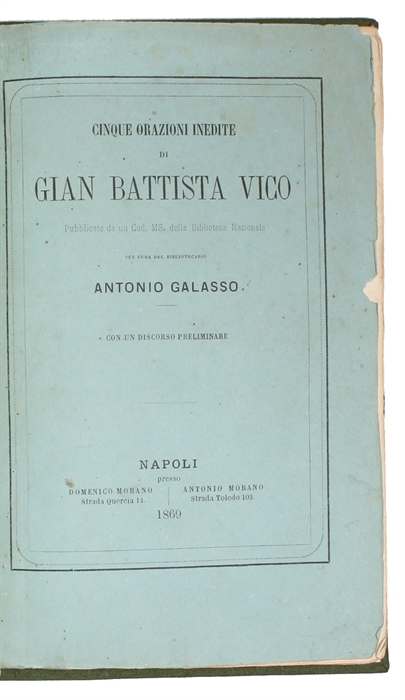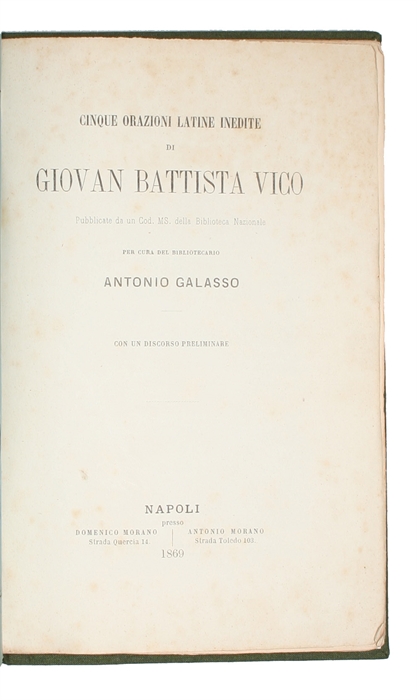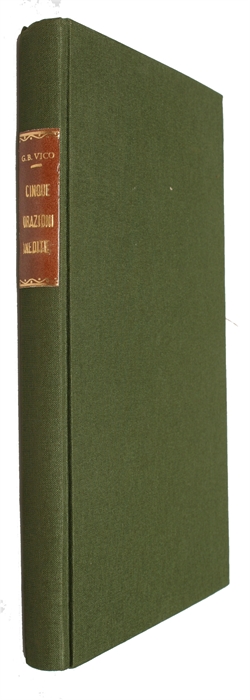THE FORERUNNER OF THE "SCIENZA NUOVA"
VICO, GIAMBATTISTA.
Cinque orazioni latine inedite. Pubblicato da un Cod. MS. della Bibliotheca Nazionale per cura del bibliotecario Antonio Galasso. Con un discorso preliminare.
Napoli, Domenico and Antonio Morano, 1869. 8vo. Bound uncut and unopened with the original blue printed wrappers in a recent green full cloth binding with gilt leather title-label to spine. Back wrapper with worm holes, lack of lower corner, and tears.Some minor brownspotting due to the paper quality. CXXIII, (1), 72 pp.
The very rare first edition, first printing, of five of Vico's early orations (Oration I, III, IV, V, VI, and the beginning of II), which founded the first basis for his seminal "Scienza Nuova". The publication of the orations is based on manuscript XIII B 53 in the National Library of Naples.
Although Vico's orations are of the greatest importance to the understanding of the philosophical and intellectual development of this seminal and vastly influential thinker, Vico himself only promoted the immediate publication of the last of them, namely the "De nostri Temporis Studiorum Ratione", which was printed in 1708, based on the argument that it summed up much of that which was included in his earlier orations. Thus, had it not been for Galasso, the invaluable five early orations, being all of the unpublished early texts, might not have been preserved for posterity. Besides this invaluable contribution to Vico scolarship, Galasso here also provides us with a very elaborate study on the seminal importance of the present orations. (Part of the second oration was published by Villarosa in 1823).
GIAMBATTISTA VICO (1668 - 1744) was appointed professor of Latin Eloqence at the University of Naples in 1699 and possessed this chair till 1708. In this capacity Vico had to each year give an inaugural oration, and it is five of these that are printed here for the first time. Vico's orations were based on classic humanistic grounds, with great inspiration found in e.g. Pico della Mirandola, and he tried to urge his students to develop both as human beings and as scholars, inspiring them to use their education to become better persons, as well as inspiring them to keep educating themselves and persuading them that they have the capacity to become wise, telling them that they are "born for wisdom".
As such, Vico's early orations display the greatest examples of his ideas of paideia and and humanitas as well as his inspiration from Greek and Latin sources and especially from the Renaissance humanists; they contain the very first sketches of his theories on humanity and history, which later came to provide the basis for his revolutionary "Scienza Nuova".
Order-nr.: 39152



